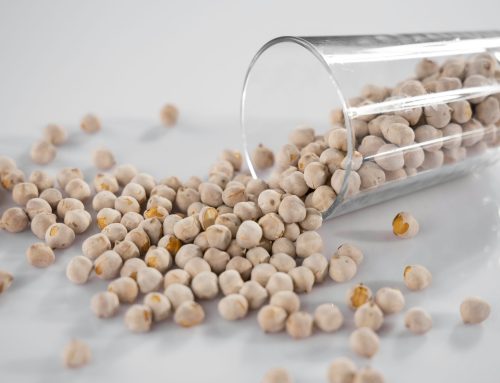Springtime brings blossoming flowers, vibrant greenery, and warmer weather, but it also heralds the arrival of seasonal allergies for many people. The sneezing, itchy eyes, and runny noses can put a damper on enjoying the great outdoors. If you’ve ever spent a spring day in Cullman, Alabama, you know how beautiful it can be. However, the blooming plants and trees also mean a significant increase in pollen, making seasonal allergies a common issue for many residents.
Seasonal allergies, also known as hay fever or allergic rhinitis, affect millions of people each year. The purpose of this article is to provide practical prevention and treatment options to help manage and reduce the symptoms of seasonal allergies.
Understanding Seasonal Allergies
Seasonal allergies happen when the immune system responds to airborne particles such as pollen. When these allergens enter the body, the immune system incorrectly perceives them as threats and releases chemicals like histamine to combat them. This reaction results in typical allergy symptoms, such as sneezing, a runny nose, nasal congestion, itchy eyes, and throat irritation.
In Cullman, the most common allergens vary by season. In the spring, tree pollen from oak, cedar, and birch trees is prevalent. During the summer, grass pollen, particularly from Bermuda and Timothy grass, becomes more common. In the fall, weed pollen, especially ragweed, is a major culprit. Understanding which allergens are most active during different times of the year can help you take proactive steps to manage your symptoms.
Over-the-Counter and Prescription Medications
One of the most effective ways to manage seasonal allergies is through medications. Look for a Cullman pharmacy that offers a range of over-the-counter and prescription medications to help manage seasonal allergies. The pharmacists there can provide personalized advice and support to ensure you get the right medication for your needs.
Over-the-Counter Medications
- Antihistamines: These medications work by blocking histamine, the chemical responsible for allergy symptoms. Common OTC antihistamines include cetirizine (Zyrtec), loratadine (Claritin), and fexofenadine (Allegra). They can help reduce sneezing, itching, and runny nose.
- Nasal Sprays: OTC nasal sprays like fluticasone (Flonase) and triamcinolone (Nasacort) can reduce inflammation in the nasal passages and provide relief from congestion and itching.
Prescription Medications
- Stronger Antihistamines: For those who do not find relief with OTC antihistamines, prescription options may be necessary. These include medications like desloratadine (Clarinex) and levocetirizine (Xyzal).
- Steroid Nasal Sprays: These are more potent than OTC options and help reduce inflammation in the nasal passages. Examples include mometasone (Nasonex) and fluticasone (Veramyst).
Prevention Tips
While medications can help manage symptoms, prevention is key to reducing exposure to allergens in the first place. Here are some tips to minimize your exposure:
Minimize Exposure to Allergens
- Stay Indoors During Peak Pollen Times: Pollen levels are usually highest in the morning and on windy days. Try to stay indoors during these times, especially when the pollen count is high.
- Keep Windows Closed: Use air conditioning to cool your home instead of opening windows. This helps prevent pollen from entering your living space.
- Shower and Change Clothes: After spending time outdoors, take a shower and change your clothes to remove any pollen that may have accumulated on your body and clothing.
Improve Indoor Air Quality
- Use Air Purifiers: Air purifiers with HEPA filters can help remove pollen and other allergens from the air in your home.
- Regularly Clean and Dust: Dust and vacuum your home frequently to reduce the amount of pollen and other allergens that can accumulate indoors.
- Keep Pets Out of the Bedroom: Pets can carry pollen on their fur, so it’s a good idea to keep them out of your bedroom to reduce your exposure while you sleep.
Natural Remedies and Lifestyle Changes
In addition to medications and prevention strategies, there are several natural remedies and lifestyle changes that can help manage seasonal allergies.
Natural Remedies
- Saline Nasal Rinses: Rinsing your nasal passages with a saline solution can help remove pollen and alleviate congestion.
- Herbal Supplements: Certain herbal supplements like butterbur and quercetin have been found to reduce allergy symptoms. It’s advisable to consult with a healthcare provider before beginning any new supplements.
Dietary Adjustments
- Anti-Inflammatory Foods: Consuming a diet abundant in anti-inflammatory foods, including fruits, vegetables, nuts, and fatty fish, can help decrease inflammation and ease allergy symptoms.
- Avoiding Trigger Foods: Some foods can cross-react with pollen and worsen allergy symptoms. For example, if you’re allergic to birch pollen, you might also react to apples, carrots, and celery. Pay attention to any foods that seem to trigger your symptoms and avoid them.
Regular Exercise
- Benefits of Staying Active: Regular exercise can help boost your immune system and reduce stress, both of which can help manage allergy symptoms.
- Tips for Exercising Outdoors: If you enjoy outdoor activities, try to exercise during times when pollen levels are lower, such as in the late afternoon or after a rainstorm.
Stress Management
- Impact of Stress on Allergies: Stress can worsen allergy symptoms, so finding ways to manage stress is important.
- Stress Reduction Techniques: Activities like yoga, meditation, and deep breathing exercises can help reduce stress and improve overall well-being.
When to See a Specialist
While many people can manage their seasonal allergies with OTC medications and lifestyle changes, there are times when it’s necessary to see a specialist.
Consulting an Allergist
- When to Seek Help: If your allergy symptoms are severe, persistent, or not responding to OTC treatments, it’s a good idea to consult an allergist.
- Allergy Tests: An allergist can perform tests to determine which specific allergens are causing your symptoms. This can help you develop a more targeted treatment plan.
- Advanced Treatments: In some cases, allergists may recommend treatments such as allergy shots (immunotherapy) to help desensitize your immune system to allergens over time.
Conclusion
Seasonal allergies can be a significant burden, but with the right prevention and treatment strategies, you can manage your symptoms and enjoy the beauty of Cullman year-round. Understanding the common allergens, using effective medications, and taking steps to reduce your exposure can make a big difference in your quality of life. Additionally, local pharmacies can provide valuable support and personalized care to help you navigate your allergies more effectively.
Take proactive steps today to manage your seasonal allergies and breathe easier all year long!








Leave A Comment